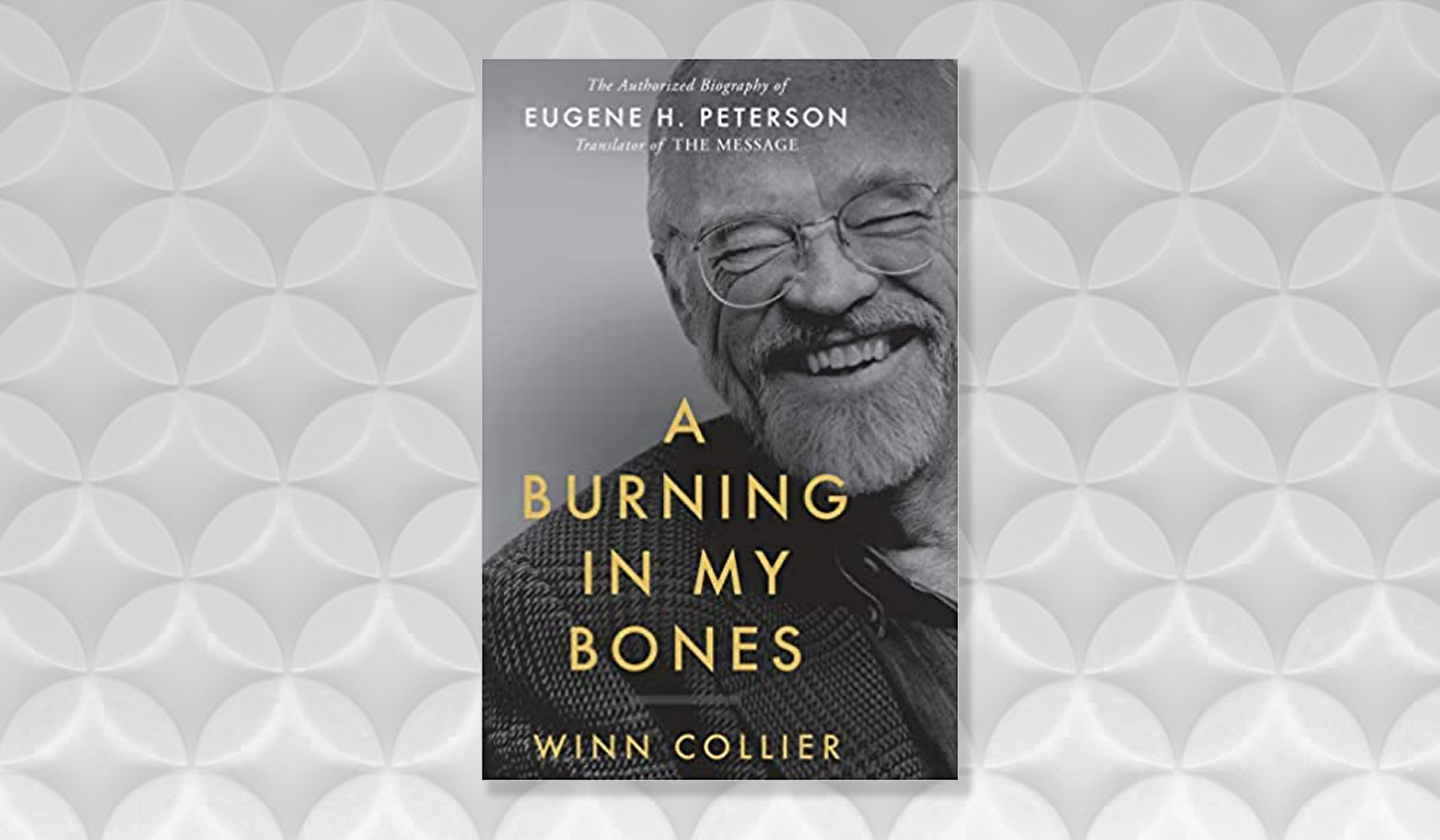Throughout the last year of the COVID-19 pandemic, I have devoured the writings of Eugene Peterson. It all started when I picked up a copy of his memoir, The Pastor; I was awakened to a vision of pastoring that was new and fresh. Peterson’s presence, his ability to be quiet and slow, and his attentiveness to prayer has shaped me as a pastor. When I saw that Winn Collier would be writing an authorized biography of Eugene Peterson, I knew it was a book I couldn’t pass up.
At times, it can be hard to write a review of a biography. What do you include? How do you review a person’s life story? What do you highlight? How do you review a biography without including spoilers? In an attempt to avoid spoilers, I will summarize Collier’s biography of Eugene Peterson in three ways: the life of Peterson, the pastoring of Peterson, and the personal impact of Peterson.
The Life of Peterson
Born in November 1932, Eugene Peterson grew up in northern Montana as the son of a butcher and charismatic mother. It was in this harsh and beautiful land of Montana, and the grit of the butcher shop, that Eugene learned what it meant to be a pastor for people: present, personal, and grounded in creation. Throughout the biography you will notice, even at the end of Peterson’s life, that Eugene was a man that was drawn to earthiness, presently attuned to the stuff of creation. Collier does an amazing job of showing the presence of Eugene, through his pastoral letters, visits, and sermons, which are samples of the powerful presence that he embodied. You also get an amazing sense of how grounded Eugene was to the normal day-to-day interactions with both creation and the people that he pastored.
For most, Eugene is known for his work on translating the Bible into The Message. For others, though, they know him as pastor, writer, and scholar. In 1962, Eugene planted Christ Our King Presbyterian Church in Bel Air, Maryland, where he would serve for the next 29 years. While pastoring and afterwards in retirement, Eugene wrote over thirty books on pastoral ministry, spiritual theology, and biblical studies. Eugene retired and passed away in the greater area of the Flathead Valley of Montana, basking in the glory of creation—water, elk, deer, eagles, and mountains.
The Pastoring of Peterson
One of the strengths of Collier’s biography is how he shows the true pastoral character of Eugene Peterson. You see this man who is slow, gentle, contemplative, and prophetic. He is attuned to the real pastoral needs of his people. In many ways, the type of pastor that Eugene was is confrontational to the type of pastor that most Americans know: he was un-busy and unhurried—small talk was a gift to him. He enjoyed sitting and listening to the normal parts of your day.
A second strength of Collier’s biography is showing the prayerful heart of Peterson. Eugene desired even his writings to feel prayerful rather than simply prose. He wanted to draw you into a rich life of communion with God—one that wasn’t formal or stale but personal, intimate, and organic. Throughout the biography, you see one of the primary pastoral callings of Peterson was to teach his people how to pray, not simply formulaic prayers, but prayers of fellowship and communion.
The Personal Impact of Peterson
During the pandemic, I spent considerable time considering the true role and calling of a pastor. It seems to me that the duties of an American pastor have morphed around executive styles of leadership rather than servant-like humility banded around Christ. Eugene has been a fresh voice of recapturing the heart of a true pastor: one that is slow, gentle, compassionate, thoughtful, contemplative, and prophetic. Collier’s biography has taught me the importance of prayer, an unhurried life, and contemplation in the life of a prayer.
At the end of the biography, I wept tears of joy for the faithfulness, thoughtfulness, and intentionality that Eugene has brought to the pastorate. I found myself time and time again writing notes in the margins, “Lord, make me this type of man; Lord, I want to be this type of pastor.” For those who are finding themselves weary, discouraged, and frustrated in the ministry, I would heartily recommend Collier’s biography as a balm for your soul.

